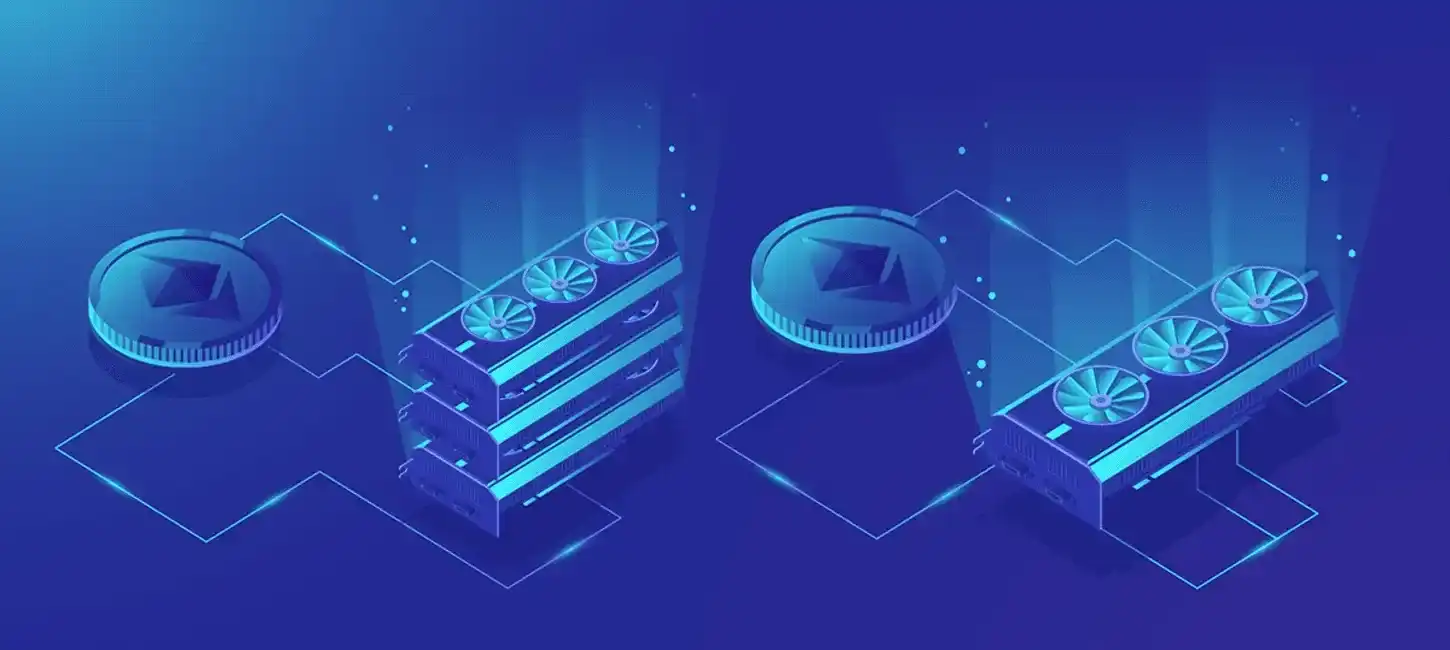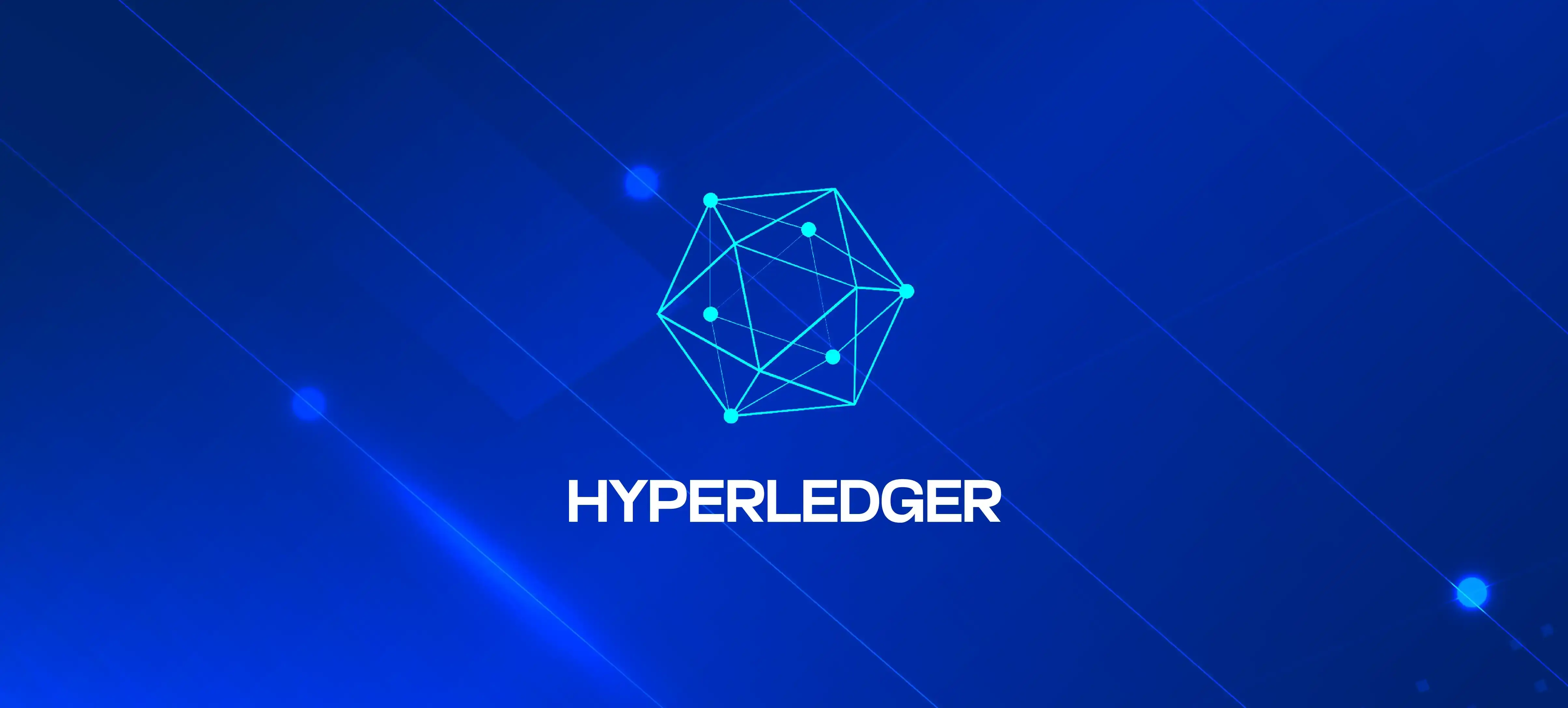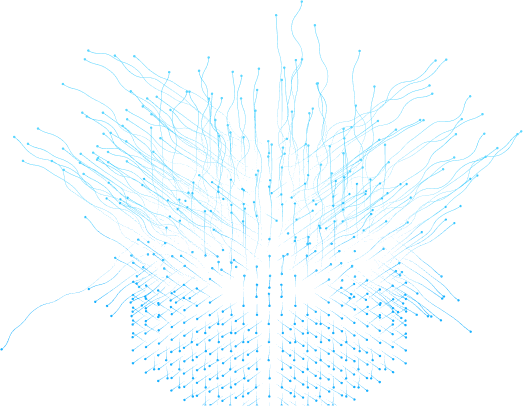
List of Top Tools and Frameworks for Ethereum Development
Table of Contents
Ethereum has established itself as a leading blockchain platform for the creation of decentralized applications (DApps) and smart contracts, gaining significant prominence in the process. To facilitate efficient and effective Ethereum development, developers can leverage a wide range of tools and frameworks.
In this article, we will explore some popular tools and frameworks that can enhance the Ethereum development process. These Ethereum development tools offer a multitude of functionalities and features that helps in automating a significant portion of your development tasks. It helps you in debugging, testing, creating, and deploying the contracts with test tools and you can have a smooth development cycle for your dApp.
We will delve into Truffle, Ganache, Hardhat, Foundry, and Remix IDE for smart contract creating, testing, debugging, and deployment, integrating with Ethereum development libraries like OpenZeppelin, and utilizing APIs and Ethereum developer tools like Infura and Metamask.
Ganache:
Ganache is a personal Ethereum blockchain that allows developers to create a local testing environment that can be utilized on your local device, serving as a valuable resource throughout the entire development process. It provides a set of pre-funded accounts for testing purposes and supports features like block mining control, transaction tracing, and contract deployment.
Ganache consists of two main components:
-
Ganache CLI
-
Ganache UI
Ganache CLI:
Ganache CLI, is the command-line interface of Ganache. It serves as a powerful tool for running a local Ethereum blockchain from the command line. You can use Ganache CLI to spin up a virtual blockchain network on their local machine, complete with pre-configured accounts and simulated Ether. It is particularly useful for automated testing, continuous integration, and script-based development workflows.
Ganache UI:
Ganache UI provides a user-friendly graphical interface that allows developers to set up and interact with a local Ethereum blockchain. It offers a simple and intuitive environment for managing accounts, viewing transaction logs, and inspecting block details. With its visual interface, you can easily monitor and debug smart contracts during the development phase.

Truffle:
Truffle is a widely-used Ethereum blockchain framework that provides a suite of features to simplify various aspects of the development process.
It is the best Ethereum development framework that provides an ecosystem for smart contract development, encompassing a development environment, and testing framework. Its purpose is to simplify the process of writing, compiling, and deploying smart contracts. Truffle also provides testing and migration of contracts to different networks.
Features include in Truffle:
-
Integrated functionalities for smart contract compilation, linking, and deployment.
-
Automated contract testing using Mocha and Chai.
-
Scriptable deployment and migrations framework.
-
Network management, facilitating deployment to multiple public and private networks.
-
External script runner executing scripts within the Truffle environment
Most frequently used commands in Truffle:
truffle init: Initializes a new Truffle project by creating the necessary file structure and configuration files.
truffle compile: Compiles the smart contracts within the project, generating the related bytecode and ABI (Application Binary Interface).
truffle migrate: Deploys the compiled smart contracts to the specified network. Truffle keeps track of deployed contracts using migration files, which can be managed through this command.
truffle test: Runs the unit tests written for the smart contracts using a testing framework like Mocha and Chai. It provides the best way to verify the functionality and behavior of the contracts.
truffle deploy: The truffle deploy command is used to deploy compiled smart contracts to a specified network. It automates the deployment process that is defined in migration files.
Hardhat:
Hardhat is a powerful Ethereum development framework that provides a comprehensive tooling and infrastructure ecosystem for building decentralized applications (DApps) and smart contracts. It offers a range of features and functionalities that enhance the development experience and streamline the workflow.
Features include in Hardhat:
Smart Contract Development: Hardhat provides a comprehensive environment for smart contract development in Solidity. It supports smart contract compilation, linking, and deployment, allowing developers to easily manage their contract artifacts.
Testing Framework: Hardhat includes a powerful testing framework that enables developers to write and execute unit tests for their smart contracts. It supports popular testing libraries like Mocha and Chai, allowing for efficient and thorough contract testing.
Scriptable Deployment and Migration: Hardhat offers a deployment and migration framework that allows developers to script and automate the deployment process of smart contracts.
Network Management: Hardhat supports multiple Ethereum networks, including local development networks, test networks, and the mainnet.
Task Automation: Hardhat provides a powerful task system that allows developers to automate various development tasks. It offers pre-built tasks for common actions like compiling, testing, and deployment.
Debugging and Tracing: Hardhat offers robust debugging and tracing capabilities to help in identifying and resolving issues in smart contracts. It supports advanced debugging features and provides detailed stack traces, making contract debugging more efficient.
Most frequently used commands in Hardhat:
npx hardhat compile: Compiles the smart contracts in the project, generating the corresponding bytecode and ABI.
npx hardhat test: Runs the unit tests written for the smart contracts using the configured testing framework. It executes the tests and provides feedback on their results.
npx hardhat run <script>: Executes a custom JavaScript or TypeScript script within the Hardhat environment.
npx hardhat node: Spins up a local Ethereum network with a set of predefined accounts. It provides a local blockchain for development and testing purposes.
npx hardhat deploy: Deploys the smart contracts to the specified network. It executes the deployment scripts defined in the migration files.
npx hardhat console: Opens an interactive console environment where you can interact with deployed smart contracts.
Foundry:
Foundry is a modular toolkit for Ethereum application development written in Rust. It is designed to be fast, portable, and modular. It is a popular choice for Ethereum development because it is fast, portable, and modular.
Features include Foundry:
Forge: Forge is a powerful testing framework for Ethereum that allows you to write and run tests for your smart contracts. It supports a variety of testing features, such as unit testing, integration testing, and performance testing.
Cast: It's a versatile tool for interacting with EVM smart contracts. It allows you to send transactions, get chain data, and debug smart contracts.
Anvil: Anvil is a local Ethereum node that you can use to develop and test your smart contracts. It is a great way to get started with Ethereum development, and it can also be used to test your smart contracts in a production-like environment.
Chisel: Chisel is a REPL for Solidity. It allows you to interact with Solidity contracts interactively, which can help debug and learn about Solidity.
Most frequently used commands in Foundry:
forge init: Foundry has created an example smart contract located at src/Counter.sol and creates a basic extendable foundry.toml file.
forge test: Command is used to run tests for your smart contracts using the Forge testing framework.
anvil --port 9545: Start Anvil, the local testnet, Anvil will give you a local RPC endpoint and the Private Keys with Accounts that you can use.
Remix IDE:
Remix IDE is a powerful web-based integrated development environment that is built for Ethereum smart contract development. It offers a user-friendly interface and supports multiple programming languages like Solidity, Vyper, and Serpent. Remix provides features like code autocompletion, syntax highlighting, and real-time compilation. It also enables developers to deploy and interact with smart contracts directly from the IDE.
It supports various testing frameworks like JavaScript VM, Injected Web3, and Solidity coverage, enabling developers to ensure the correctness and functionality of their contracts.

OpenZeppelin Library:
OpenZeppelin is a widely-used open-source library and Ethereum dApp framework for building secure and audited smart contracts on the Ethereum blockchain. It provides a collection of reusable and tested smart contract components, allowing developers to leverage existing code and best practices for developing DApps.
Integrating with OpenZeppelin involves the following steps:
Set up a New Project: Start by setting up a new project using your preferred Ethereum development frameworks, such as Truffle or Hardhat. Initialize the project and install the necessary dependencies.
Install OpenZeppelin: Add OpenZeppelin to your project by installing the library as a dependency. OpenZeppelin provides an npm package that can be easily installed using the command “npm install @openzeppelin/contracts” to install the OpenZeppelin Contracts library.
Import OpenZeppelin Contracts: In your smart contract file, import the desired OpenZeppelin contract components that you want to use. For example, if you want to use the ERC20 token standard, you can import it with import "@openzeppelin/contracts/token/ERC20/ERC20.sol". You can import and use multiple components based on your project requirements.
Extend OpenZeppelin Contracts: Extend the imported OpenZeppelin contract components in your smart contract. It allows you to inherit the functionalities and features provided by OpenZeppelin while adding your specific implementation logic.
Customize and Deploy: Customize and modify the inherited OpenZeppelin contracts as per your project requirements. Add additional functionalities, modify behavior, or implement custom business logic.
Test and Validate: Write unit tests for your smart contracts using a testing framework like Mocha and Chai.
Security Audit: Consider getting your smart contracts audited by security experts or conducting thorough internal reviews to ensure the security and reliability of your code.
Deployment and Interactions: Deploy your smart contracts to the desired Ethereum network using your chosen deployment method (Truffle migrations). Interact with your smart contracts using Ethereum tools like Remix IDE, web3.js, or ethers.js to test the contract's functionality and verify its integration with OpenZeppelin components.
Utilizing infura and Metamask:
Infura:
Infura is an Ethereum API service that provides developers with convenient and reliable access to the Ethereum network without the need to run their nodes. Here's how you can utilize Infura:
API Endpoint: Obtain an API endpoint from Infura by creating an account on their website. This endpoint allows you to connect to the Ethereum network and perform various operations.
Web3 Integration: Configure your Ethereum development framework or library web3.js or ether.js to connect to the Infura endpoint. This allows your application to send transactions, query data, and interact with smart contracts on the Ethereum network.
Network Selection: Infura offers multiple network options, such as the mainnet, testnets (Sepolia, Ropsten, Rinkeby, Kovan), and private networks.
MetaMask:
Metamask is a popular Ethereum wallet and browser extension that allows users to manage their Ethereum accounts and interact with decentralized applications. As a developer, you can utilize Metamask in the following ways:
Browser Extension: Install the Metamask extension in your web browser Chrome, Firefox, or Brave. This provides a user-friendly Ethereum wallet and a development environment for interacting with DApps.
Local Development: Metamask includes a feature called "Custom RPC" that allows you to connect to a local Ethereum network or a specific network URL like Ganache. It will enable you to test and interact with your locally deployed contracts during development.
Account Management: Metamask provides a wallet interface for managing Ethereum accounts. You can create new accounts, import existing accounts, and switch between different accounts within the extension.
DApp Integration: When developing decentralized applications, you can integrate Metamask to enable seamless account connectivity and transaction signing. Metamask injects a JavaScript object (window.ethereum) into the browser, which allows your DApp to interact with users' Ethereum accounts securely.
Conclusion:
All the Ethereum dev tools mentioned above help you build smart contracts, dApp development testing, interact and add the different custom features on your contracts for deployment on the Ethereum-based blockchain. Ganache is for quick and fast development of dApp, Remix is very flexible for writing contracts, interaction, and deployment. Truffle, Hardhat, and Foundry are very handy when custom the testing and deployment required on the side of the script.
Openzeppline library is to integrate the reusable and tested smart contract components in your contracts. Infura provides a reliable and fast API endpoint that you can use in your deployment script. MetaMask allows users to manage their Ethereum accounts and interact with decentralized applications. If you have a strong command of these tools it will strengthen your development, research, testing, and deployment in the blockchain field.
Table of Contents
Ethereum has established itself as a leading blockchain platform for the creation of decentralized applications (DApps) and smart contracts, gaining significant prominence in the process. To facilitate efficient and effective Ethereum development, developers can leverage a wide range of tools and frameworks.
In this article, we will explore some popular tools and frameworks that can enhance the Ethereum development process. These Ethereum development tools offer a multitude of functionalities and features that helps in automating a significant portion of your development tasks. It helps you in debugging, testing, creating, and deploying the contracts with test tools and you can have a smooth development cycle for your dApp.
We will delve into Truffle, Ganache, Hardhat, Foundry, and Remix IDE for smart contract creating, testing, debugging, and deployment, integrating with Ethereum development libraries like OpenZeppelin, and utilizing APIs and Ethereum developer tools like Infura and Metamask.
Ganache:
Ganache is a personal Ethereum blockchain that allows developers to create a local testing environment that can be utilized on your local device, serving as a valuable resource throughout the entire development process. It provides a set of pre-funded accounts for testing purposes and supports features like block mining control, transaction tracing, and contract deployment.
Ganache consists of two main components:
-
Ganache CLI
-
Ganache UI
Ganache CLI:
Ganache CLI, is the command-line interface of Ganache. It serves as a powerful tool for running a local Ethereum blockchain from the command line. You can use Ganache CLI to spin up a virtual blockchain network on their local machine, complete with pre-configured accounts and simulated Ether. It is particularly useful for automated testing, continuous integration, and script-based development workflows.
Ganache UI:
Ganache UI provides a user-friendly graphical interface that allows developers to set up and interact with a local Ethereum blockchain. It offers a simple and intuitive environment for managing accounts, viewing transaction logs, and inspecting block details. With its visual interface, you can easily monitor and debug smart contracts during the development phase.

Truffle:
Truffle is a widely-used Ethereum blockchain framework that provides a suite of features to simplify various aspects of the development process.
It is the best Ethereum development framework that provides an ecosystem for smart contract development, encompassing a development environment, and testing framework. Its purpose is to simplify the process of writing, compiling, and deploying smart contracts. Truffle also provides testing and migration of contracts to different networks.
Features include in Truffle:
-
Integrated functionalities for smart contract compilation, linking, and deployment.
-
Automated contract testing using Mocha and Chai.
-
Scriptable deployment and migrations framework.
-
Network management, facilitating deployment to multiple public and private networks.
-
External script runner executing scripts within the Truffle environment
Most frequently used commands in Truffle:
truffle init: Initializes a new Truffle project by creating the necessary file structure and configuration files.
truffle compile: Compiles the smart contracts within the project, generating the related bytecode and ABI (Application Binary Interface).
truffle migrate: Deploys the compiled smart contracts to the specified network. Truffle keeps track of deployed contracts using migration files, which can be managed through this command.
truffle test: Runs the unit tests written for the smart contracts using a testing framework like Mocha and Chai. It provides the best way to verify the functionality and behavior of the contracts.
truffle deploy: The truffle deploy command is used to deploy compiled smart contracts to a specified network. It automates the deployment process that is defined in migration files.
Hardhat:
Hardhat is a powerful Ethereum development framework that provides a comprehensive tooling and infrastructure ecosystem for building decentralized applications (DApps) and smart contracts. It offers a range of features and functionalities that enhance the development experience and streamline the workflow.
Features include in Hardhat:
Smart Contract Development: Hardhat provides a comprehensive environment for smart contract development in Solidity. It supports smart contract compilation, linking, and deployment, allowing developers to easily manage their contract artifacts.
Testing Framework: Hardhat includes a powerful testing framework that enables developers to write and execute unit tests for their smart contracts. It supports popular testing libraries like Mocha and Chai, allowing for efficient and thorough contract testing.
Scriptable Deployment and Migration: Hardhat offers a deployment and migration framework that allows developers to script and automate the deployment process of smart contracts.
Network Management: Hardhat supports multiple Ethereum networks, including local development networks, test networks, and the mainnet.
Task Automation: Hardhat provides a powerful task system that allows developers to automate various development tasks. It offers pre-built tasks for common actions like compiling, testing, and deployment.
Debugging and Tracing: Hardhat offers robust debugging and tracing capabilities to help in identifying and resolving issues in smart contracts. It supports advanced debugging features and provides detailed stack traces, making contract debugging more efficient.
Most frequently used commands in Hardhat:
npx hardhat compile: Compiles the smart contracts in the project, generating the corresponding bytecode and ABI.
npx hardhat test: Runs the unit tests written for the smart contracts using the configured testing framework. It executes the tests and provides feedback on their results.
npx hardhat run <script>: Executes a custom JavaScript or TypeScript script within the Hardhat environment.
npx hardhat node: Spins up a local Ethereum network with a set of predefined accounts. It provides a local blockchain for development and testing purposes.
npx hardhat deploy: Deploys the smart contracts to the specified network. It executes the deployment scripts defined in the migration files.
npx hardhat console: Opens an interactive console environment where you can interact with deployed smart contracts.
Foundry:
Foundry is a modular toolkit for Ethereum application development written in Rust. It is designed to be fast, portable, and modular. It is a popular choice for Ethereum development because it is fast, portable, and modular.
Features include Foundry:
Forge: Forge is a powerful testing framework for Ethereum that allows you to write and run tests for your smart contracts. It supports a variety of testing features, such as unit testing, integration testing, and performance testing.
Cast: It's a versatile tool for interacting with EVM smart contracts. It allows you to send transactions, get chain data, and debug smart contracts.
Anvil: Anvil is a local Ethereum node that you can use to develop and test your smart contracts. It is a great way to get started with Ethereum development, and it can also be used to test your smart contracts in a production-like environment.
Chisel: Chisel is a REPL for Solidity. It allows you to interact with Solidity contracts interactively, which can help debug and learn about Solidity.
Most frequently used commands in Foundry:
forge init: Foundry has created an example smart contract located at src/Counter.sol and creates a basic extendable foundry.toml file.
forge test: Command is used to run tests for your smart contracts using the Forge testing framework.
anvil --port 9545: Start Anvil, the local testnet, Anvil will give you a local RPC endpoint and the Private Keys with Accounts that you can use.
Remix IDE:
Remix IDE is a powerful web-based integrated development environment that is built for Ethereum smart contract development. It offers a user-friendly interface and supports multiple programming languages like Solidity, Vyper, and Serpent. Remix provides features like code autocompletion, syntax highlighting, and real-time compilation. It also enables developers to deploy and interact with smart contracts directly from the IDE.
It supports various testing frameworks like JavaScript VM, Injected Web3, and Solidity coverage, enabling developers to ensure the correctness and functionality of their contracts.

OpenZeppelin Library:
OpenZeppelin is a widely-used open-source library and Ethereum dApp framework for building secure and audited smart contracts on the Ethereum blockchain. It provides a collection of reusable and tested smart contract components, allowing developers to leverage existing code and best practices for developing DApps.
Integrating with OpenZeppelin involves the following steps:
Set up a New Project: Start by setting up a new project using your preferred Ethereum development frameworks, such as Truffle or Hardhat. Initialize the project and install the necessary dependencies.
Install OpenZeppelin: Add OpenZeppelin to your project by installing the library as a dependency. OpenZeppelin provides an npm package that can be easily installed using the command “npm install @openzeppelin/contracts” to install the OpenZeppelin Contracts library.
Import OpenZeppelin Contracts: In your smart contract file, import the desired OpenZeppelin contract components that you want to use. For example, if you want to use the ERC20 token standard, you can import it with import "@openzeppelin/contracts/token/ERC20/ERC20.sol". You can import and use multiple components based on your project requirements.
Extend OpenZeppelin Contracts: Extend the imported OpenZeppelin contract components in your smart contract. It allows you to inherit the functionalities and features provided by OpenZeppelin while adding your specific implementation logic.
Customize and Deploy: Customize and modify the inherited OpenZeppelin contracts as per your project requirements. Add additional functionalities, modify behavior, or implement custom business logic.
Test and Validate: Write unit tests for your smart contracts using a testing framework like Mocha and Chai.
Security Audit: Consider getting your smart contracts audited by security experts or conducting thorough internal reviews to ensure the security and reliability of your code.
Deployment and Interactions: Deploy your smart contracts to the desired Ethereum network using your chosen deployment method (Truffle migrations). Interact with your smart contracts using Ethereum tools like Remix IDE, web3.js, or ethers.js to test the contract's functionality and verify its integration with OpenZeppelin components.
Utilizing infura and Metamask:
Infura:
Infura is an Ethereum API service that provides developers with convenient and reliable access to the Ethereum network without the need to run their nodes. Here's how you can utilize Infura:
API Endpoint: Obtain an API endpoint from Infura by creating an account on their website. This endpoint allows you to connect to the Ethereum network and perform various operations.
Web3 Integration: Configure your Ethereum development framework or library web3.js or ether.js to connect to the Infura endpoint. This allows your application to send transactions, query data, and interact with smart contracts on the Ethereum network.
Network Selection: Infura offers multiple network options, such as the mainnet, testnets (Sepolia, Ropsten, Rinkeby, Kovan), and private networks.
MetaMask:
Metamask is a popular Ethereum wallet and browser extension that allows users to manage their Ethereum accounts and interact with decentralized applications. As a developer, you can utilize Metamask in the following ways:
Browser Extension: Install the Metamask extension in your web browser Chrome, Firefox, or Brave. This provides a user-friendly Ethereum wallet and a development environment for interacting with DApps.
Local Development: Metamask includes a feature called "Custom RPC" that allows you to connect to a local Ethereum network or a specific network URL like Ganache. It will enable you to test and interact with your locally deployed contracts during development.
Account Management: Metamask provides a wallet interface for managing Ethereum accounts. You can create new accounts, import existing accounts, and switch between different accounts within the extension.
DApp Integration: When developing decentralized applications, you can integrate Metamask to enable seamless account connectivity and transaction signing. Metamask injects a JavaScript object (window.ethereum) into the browser, which allows your DApp to interact with users' Ethereum accounts securely.
Conclusion:
All the Ethereum dev tools mentioned above help you build smart contracts, dApp development testing, interact and add the different custom features on your contracts for deployment on the Ethereum-based blockchain. Ganache is for quick and fast development of dApp, Remix is very flexible for writing contracts, interaction, and deployment. Truffle, Hardhat, and Foundry are very handy when custom the testing and deployment required on the side of the script.
Openzeppline library is to integrate the reusable and tested smart contract components in your contracts. Infura provides a reliable and fast API endpoint that you can use in your deployment script. MetaMask allows users to manage their Ethereum accounts and interact with decentralized applications. If you have a strong command of these tools it will strengthen your development, research, testing, and deployment in the blockchain field.





